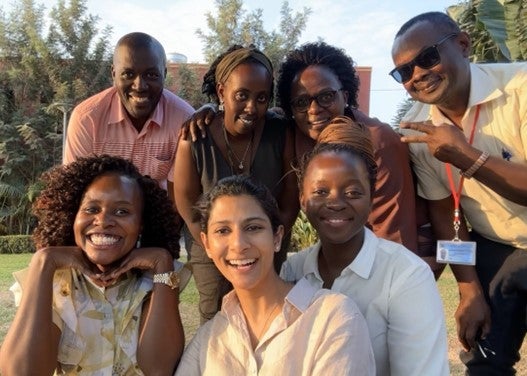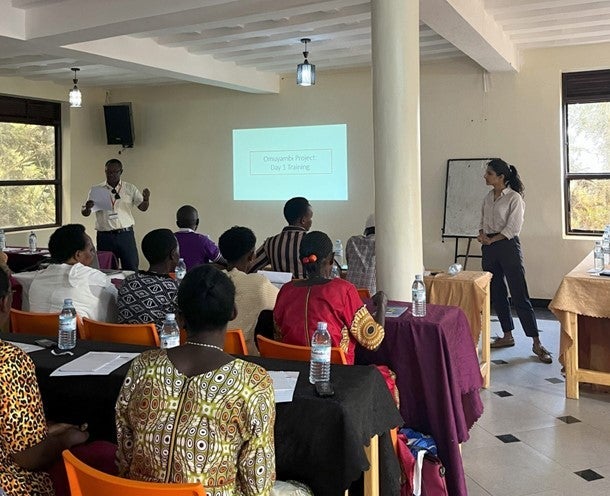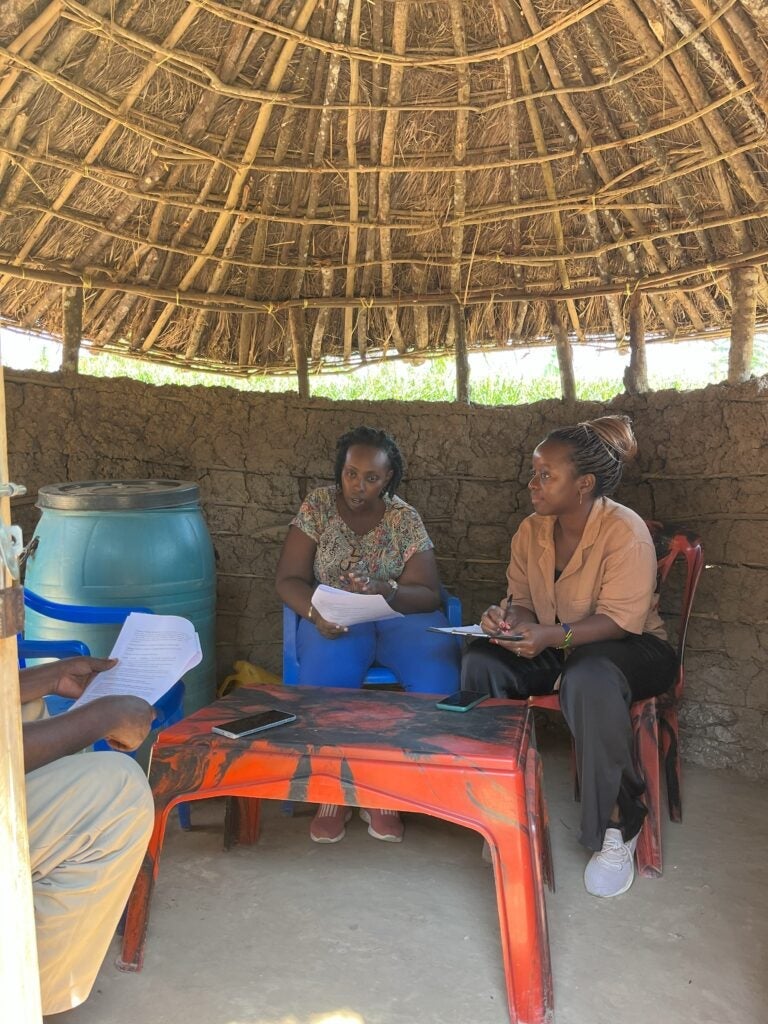Redefining the Field of “Global Health”: The Importance of Local Partnerships

Pictured above: The author, Valencia Lambert (front, right), with the research team in Mbarara, Uganda
By Valencia Lambert
Rose Service Learning Fellow
SM Candidate, Department of Global Health
From a very young age, I was convinced that my career would be in health. I liked helping people; as many of us would say. Even as a primary school student, without the proper-terminology of the concept, I vaguely understood the numerous “non-medical” factors that influenced health. Many Tanzanians, including myself, remember reciting the words “education is the key to success” or “elimu ni ufunguo wa maisha” at school – a value that my community (teachers, parents, relatives, neighbors, etc.) tried to instill in us. We understood that education facilitated upward social mobility – which impacts health, access to services, etc. It wasn’t until I was in college that I learnt the terminology “social determinants of health”. However, evidently, throughout my childhood, I understood and witnessed the impact of these “non-medical” factors within my community. Consequently, I knew I wanted to embark on a career path that was intricately interwoven with the field of public health.
However, as I went through the field of Global Health, and continue to do so to date, I often grapple with its colonial origins and its at times extractive nature. As a Tanzanian woman in this field, I ask myself, what am I doing to redefine the field of Global Health? Some might argue that by virtue of being a Tanzanian woman (a minority) in this field, I am redefining the face of Global Health – which has historically been white and male dominated. While, others, including myself, might add that it is through local partnerships that the field of Global Health can truly be redefined.

Right before I headed to my summer internship I read a commentary by Dr. Richard Horton published in The Lancet, “Offline: The case of Global Health.” Throughout the entire commentary, I
reflected on the words of Dr. Olusoji Adeyi: “the Global North decides the narrative and assumes the omniscience to tell the Global South what the latter needs, when it can have it, how to do it, and on whose terms it must be done.” Consequently, as I started my internship in Mbarara, Uganda, I was excited to embark on another experience in which the narrative, the needs and the intervention was shaped by local experts or the “Global South” as Dr. Olusoji Adeyi would say. While I was in Mbarara, Uganda, I worked on a project called “Omuyambi”, which means “support” in Runyakole. The premise of this project is that traditional medicine is widely used amongst Africans; with healers serving as the first line – often preferred – health providers in their communities. In addition, many people who visit traditional healers are living with HIV, but are either undiagnosed or have disengaged from clinical care. This project focuses on training traditional healers to facilitate HIV testing, encourage linkage to care, and deliver psychosocial support for people living with HIV in rural communities in Southwestern Uganda.
Throughout the 8-weeks I was in the field – talking to traditional healers, refining the study instruments, mapping the study area, etc. – I was honored to be part of this study team. I saw the power of leveraging the influence of traditional healers as prominent community members (who have historically been characterized as barriers to HIV care uptake) to reach and support individuals who have been hard to reach via existing HIV programs.

Consequently, this summer experience affirmed my belief that it is through meaningful local partnerships that the global health landscape can truly be redefined. Over the summer I witnessed just a snippet of this partnership between Weill Cornell Medicine and Mbarara University of Science and Technology, but I look forward to seeing the impact of this novel intervention once it is fully implemented and evaluated – as it embodies and centers the idea of local partnerships.
As you read this blog post, I encourage you too to take some time to reflect on Dr. Olusoji Adeyi’s words “the Global North decides the narrative and assumes the omniscience to tell the Global South what the latter needs, when it can have it, how to do it, and on whose terms it must be done.” I encourage you to brainstorm how we, as scholars in the field of global health, can change this rhetoric. How can we redefine the field of global health?


